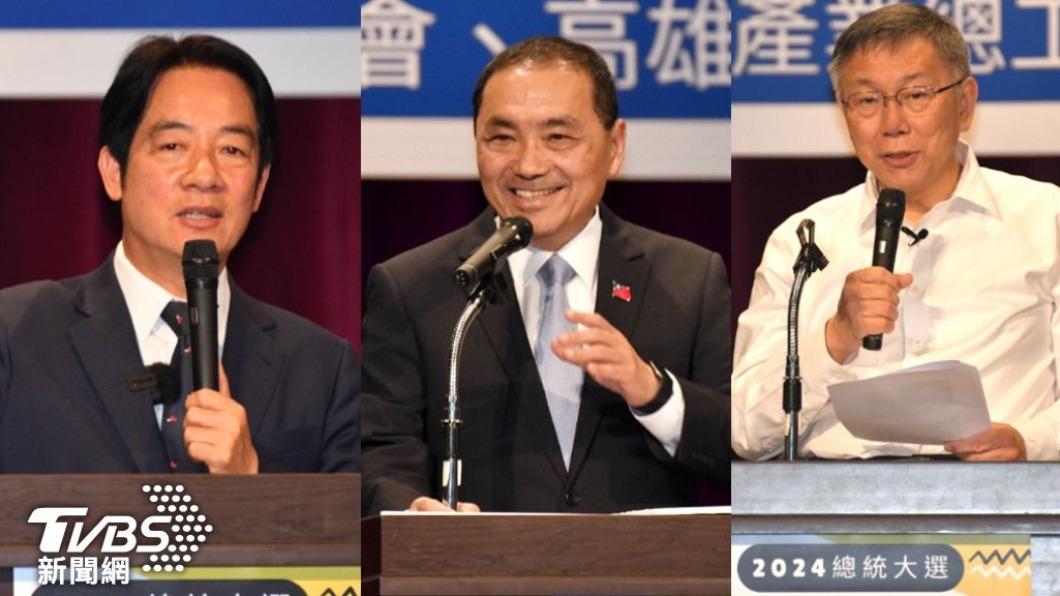TAIPEI (TVBS News) — As Taiwan prepares for the 2024 presidential election, a new poll from ETtoday released Wednesday (Dec. 20) reveals that 40.5% of the populace would definitely not vote for the Democratic Progressive Party's (DPP) Lai-Hsiao ticket (Lai Ching-te, Hsiao Bi-khim).
Amid escalating tensions with China, the survey indicated that 47.1% believe cross-strait economic and people-to-people exchanges could worsen under the leadership of Lai Ching-te as president.
In terms of support, Lai-Hsiao is in the lead with 35.9%, closely followed by Kuomintang's (KMT) Hou-Jaw ticket (Hou Yu-ih, Jaw Shaw-kong) with 34.7%, and the Taiwan People's Party (TPP) Ko-Wu ticket (Ko Wen-je, Cynthia Wu) lagging behind at 19.6%.
Meanwhile, 1.5% of participants plan to abstain or render their ballots invalid, and 8.3% remain undecided.
Optimism regarding the election outcome shows 44.3% in favor of Lai-Hsiao winning, as compared to 30.1% for Hou-Jaw and 13.8% for Ko-Wu. However, 11.8% of the public have no opinion or are unsure.
The resistance towards other candidates is notable, with 27.3% completely ruling out voting for Hou-Jaw and 20.6% against Ko-Wu.
Among the candidates, Hou Yu-ih is believed to have a 16.4% impact on cross-strait relations, while Ko Wen-je is perceived to hold an 11.6% influence. A significant 24.8% of respondents are uncertain or have no opinion on this matter.
China's Ministry of Commerce conducted an investigation into trade barriers in April and subsequently identified Taiwan's trade measures against the mainland as constituting trade barriers earlier this year.
In response to the mainland's announcement, Lai emphasized that both Taiwan and China, as members of the World Trade Organization (WTO) should resolve disputes through the organization's mechanisms.
Hou Yu-ih criticized the current Democratic Progressive Party government for its shifting stance on the Economic Cooperation Framework Agreement (ECFA) with the mainland, urging negotiations.
This poll, conducted from December 18-19, surveyed 1,224 individuals from Taiwan and the Fujian area, aged 20 and above, through a closed internet questionnaire. The study was funded by ETtoday and has a sampling error of ±2.8% at a 95% confidence level.



